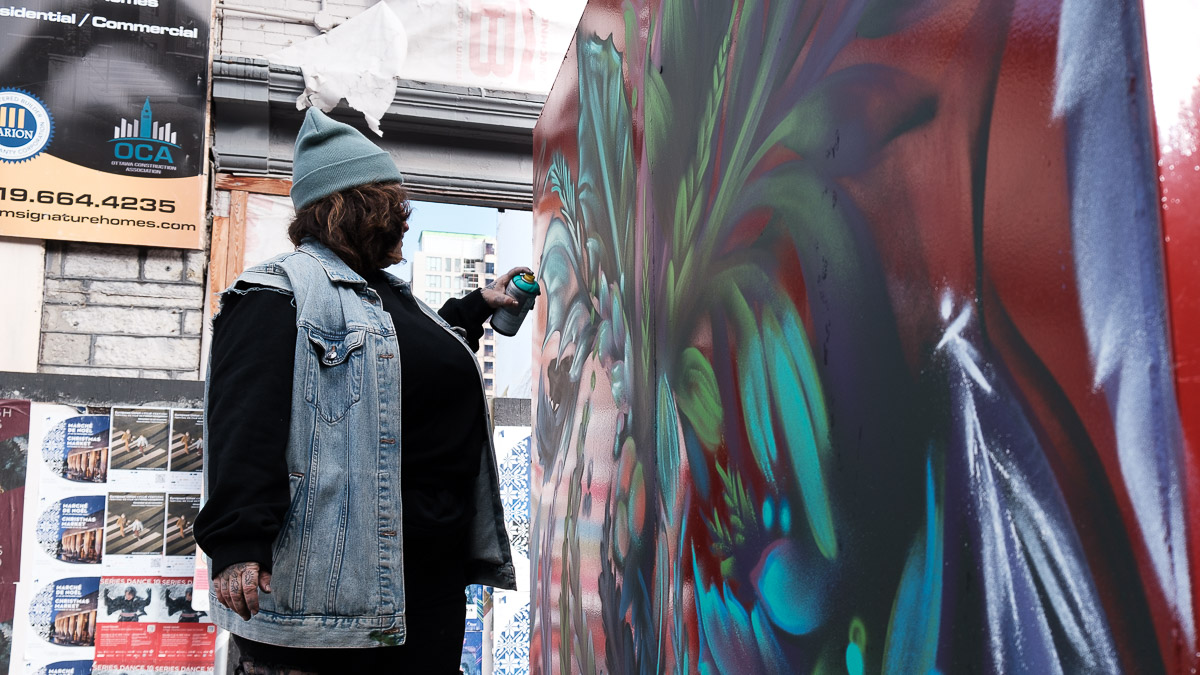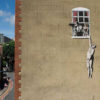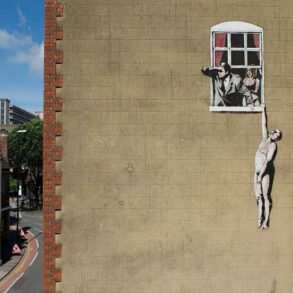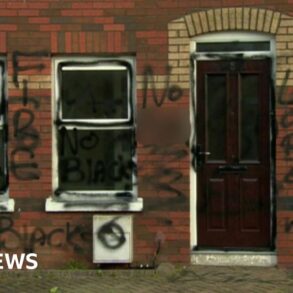
Graffiti artist Mique Michelle, uses her art to create awareness about the oppression that visible and invisible minorities face.
“Every piece is so different,” said Michelle, while completing a new piece in the ByWard Market. “I’m so privileged. Because there’s a spray paint can, people share their stories.”
Michelle says she believes artists have a responsibility to challenge stereotypes and change the conversation about graffiti art.
“I think it’s just as important, just making sure that, as an artist, you remember it’s your responsibility that it’s clear and precise what you’re trying to say,” she said.
But in a time of soaring numbers of public incidents of hate vandalism against certain groups in Ottawa, graffiti art can get caught up in the controversy
That’s why the street artist for more than a decade says it’s important to address hate vandalism as a societal issue rather than blaming graffiti art. She said associating vandalism with the art work criminalizes the art form and can have dangerous consequences.
In an email statement the City Of Ottawa told Capital Current it does recognize “that public art plays an important role in beautifying and enhancing our community to reflect and depict culture, history or visions of artistic expression.” The city said that’s why it supports public murals on city building aiming to deter vandalism and support arts and culture.
The city’s 2008 Graffiti Management Strategy focuses on a commitment to remove hate and offensive vandalism within 12 hours after investigations by the Ottawa police. The city cleans away the offending messages by power washing, the use of chemical solvents, abrasive blasting and specialized graffiti removal products.
But with reported incidents of hate vandalism on the rise in Ottawa and hate and offensive complaints nearly doubling since 2023, the nearly 16 year-old strategy may be at its limits.
The City of Ottawa defines graffiti as “the etching, painting, or placing of a mark on public or private property.” Graffiti is considered vandalism when it is placed on public or private property without permission.
The city defines hate graffiti as graffiti “motivated by hate, bias or prejudice, based on race, nationality, ethnic origin, language, colour, religion, sex, age, mental or physical disability, sexual orientations, or any similar factor.”
In an email, the City of Ottawa said the number of hate vandalism incidents have risen from 141 in 2023 to 222 this year.
This coincides with the rise in hate graffiti complaints. An analysis by Capital Current of the data that the city uses to track complaints shows complaints of hate graffiti in 2024 are at their highest ever. As of Nov. 25, there have been 125 complaints of hate graffiti compared to 69 at the same time last year.
According to Capital Current’s analysis of the data Ottawa Police use to track hate crimes, hate graffiti is part of an increase in hate crimes generally. In 2023, there was a 29 per cent increase in hate crimes from the previous year. While this year’s data only accounts for the first six months, it’s roughly on par with last year’s numbers.
In both years, Jews were most targeted.
“It’s unfortunate, it’s sad, and I’m not surprised,” said Timea Spitka, reacting to the data. Spitka is a human rights expert at Carleton Univserity who focuses her research on violent and non-violent conflicts. She said that due to current world conflicts, there is a general rise in polarization in the world.
“When people see horror on the news and on their phones, especially if they’re directly affected by it, then they get upset,” Spitka said.
According to Spitka, social media triggers a more emotional response from people because they are witnessing tragedy from only one side.
“People feel like they have to take a side and nationalistic side, when it should be a human side,” she said.
Spitka said that while this rise in hate and polarization is triggered by global issues, there is still work to be done locally.
“I think listening is probably the biggest thing that we can do. Instead of talking, start listening, learning about the conflict, learning about, the realities of the other,” she said.
Residents are encouraged to call Ottawa Police Services to report hate vandalism.
More Stories
This post was originally published on this site be sure to check out more of their content.









